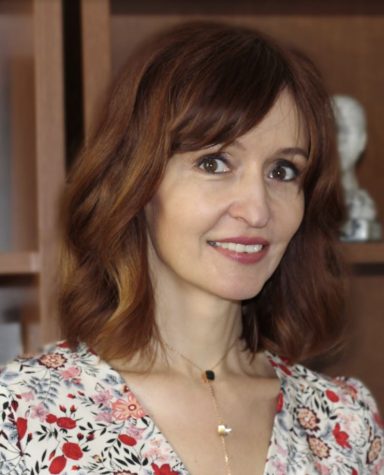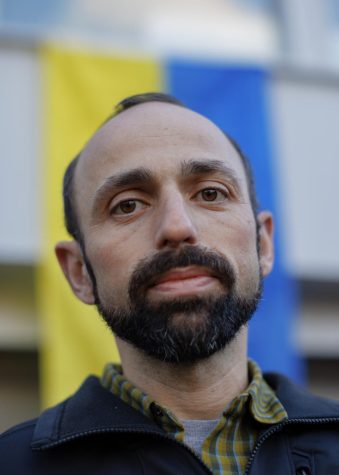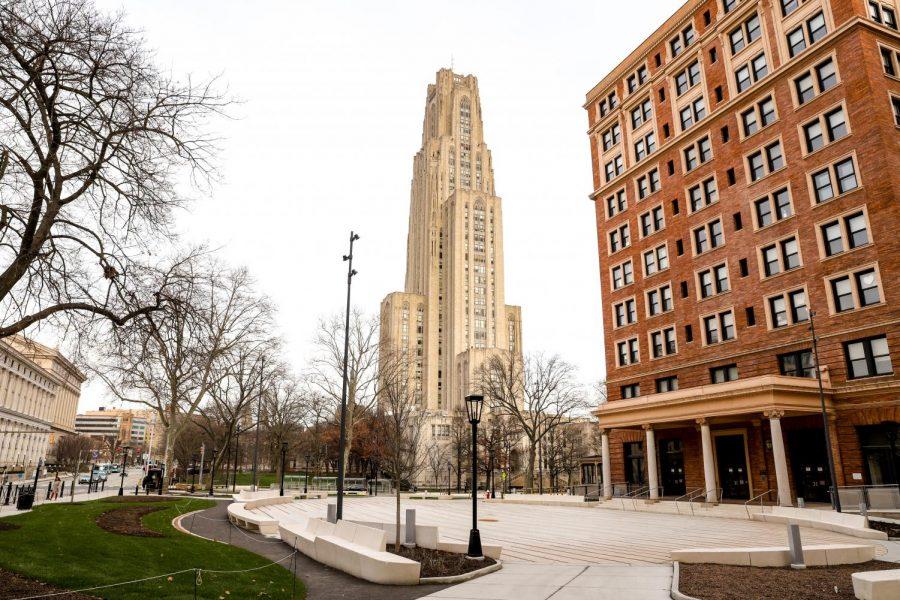Pitt professors provide aid to struggling Ukranians
The Cathedral of Learning and William Pitt Union on campus.
June 1, 2022
As the war in Ukraine rages on, millions of civilians are being left to grapple with trauma and severe distress without access to proper mental health care, according to Carmen Andreescu.
“We watch movies, we read books, but none of us ever actually seriously think we will end up in a circumstance like this, and these people go through them and they need support,” Andreescu said.
As mental health facilities continue to be shuttered and bombed, psychiatrists within the Pitt community are working to ensure that Ukranian civilians and first responders have access to the care they need during this heavily traumatic time.
Associate professors of psychiatry Andreescu and Alexandre Dombrovski are currently working alongside the Federation Global Initiative on Psychiatry (FGIP), a nonprofit organization that works to combat political abuse of psychiatric care, to spearhead a variety of projects that focus on providing accessible forms of mental health care and aid to the Ukrainian population. The team is made up of renowned psychiatrists and professors from various universities, as well as between 20 to 30 volunteers working on the grounds in Ukraine at any given time.
Though the projects only launched in late February, Beatriz Luna, a professor in Pitt’s psychology department, said Andreescu and Dombrovski’s efforts have received an outpour of community support.
“The response we have has been overwhelmingly positive and generous,” Luna said. “Everyone is committed to this cause.”
Andreescu said in order to best meet the needs of the civilians, the team aims to focus each project on a unique goal or population.
“[One of the] project[s] that we are working on is to help people with mental illness who are trapped in Ukraine, but also the general population over there,” Andreescu said. “We also focus one of the projects on people who have mental illness and are either trapped in hospitals in Ukraine or have difficulties getting treatment because of the disruption that the war brought to the entire mental health system there.”

(Photo courtesy of Carmen Andreescu )
The volunteer team is currently working on another project that involves aiding Ukrainian first responders who may be struggling with mental health on the frontlines. Through these various projects, Andreescu said the team provides aid to Ukrainian citizens in several ways, including providing medical supplies and volunteers to assist those in traumatic or potentially life-threatening situations.
“We have footage from hospitals, for example, in Kyiv, [that have been] bombed and occupied by Russians,” Andreescu said. “Then when the Ukranians pushed back, and it was liberated, our people on the ground were able to go there and deliver aid.”
In order to compensate for the sudden sharp decrease in access to mental health treatment, Andreescu said the team provides Ukranians with access to an online platform where they can learn and practice new coping strategies and speak with a psychologist in real time.
“Luckily, the internet is still working in Ukraine, and people have access to their phones where they can access this platform where they receive very simple advice and strategies about how to deal with stress,” Andreescu said. “More importantly, they are connected with psychologists and counselors.”
Andreescu said many of those that they work with have no choice but to remain in the country, even if their families were able to flee. As a result, each patient that the volunteers assist have their own individualized needs that otherwise may not be met, according to Andreescu.
Because of the magnitude of the atrocities faced by the Ukrainian people, as well as the economic and infrastructural effects of the war, the team often faces significant challenges when providing necessary aid, according to both Dombrovski and Andreescu.
Dombrovski said even gas is difficult to come by, making supply deliveries increasingly difficult for volunteers on the ground.
“It is very hard to watch the continued damage to Ukraine’s infrastructure,” Dombrovski said. “Finding gas has become a challenge, our drivers have to queue for hours at gas stations.”

Due to the extent of these obstacles, Andreescu said the team needs a great deal of funding in order to best serve the needs of every individual they are looking to serve, whether it be by providing them with direct treatment or with the electricity they need to stay warm.
As a result, while the initiative is not yet funded by the University, Dombrovski said the team has received several large donations from various organizations within the past few months.
“We have received a $100K grant from the Brother’s Brother Foundation, a $10K donation from UPMC Health Plan and about $15K from private donors,” Dombrovski said.
With no clear end in sight for the war, FGIP is currently raising additional funds to keep the project afloat and provide further assistance to first responders. By donating to the projects, Andreescu said that anyone can help provide care, supplies and support directly to those who need it most.
“I think a lot of us here may struggle with the fact that we are sheltered and we want to help [but] we don’t know exactly [how],” Andreescu said. “You see everywhere ‘Donate for Ukraine, this and this and that’ and you don’t know where that goes, right? You know what happens with your donation [to this initiative]. It’s very rewarding to know exactly that this is going to the people in the hospitals who don’t have a generator and now will have some heat or get some warm food or the medications that they [need].”



